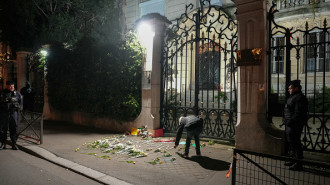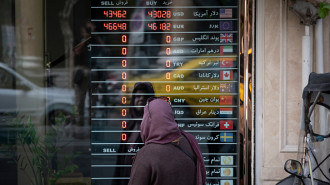Iraq moves forward with bid to find new president after one year of deadlock
An Iraqi parliamentary speaker on Monday announced he had received a request signed by 170 lawmakers to hold a session to elect a new president for the country on Wednesday.
First Deputy Speaker Mohsen Al-Mandalawi made the announcement during a parliamentary session, saying the speakers' office will decide on the request, The New Arab's Arabic sister service, Al-Araby Al-Jadeed, reported. Baghdad's legislature is made up of 329 members of parliament.
A new president would be a step toward forming a government for the first time in a year and put an end to Iraq's long-running political crisis.
Political sources told Al-Araby Al-Jadeed earlier on Monday that a political delegation, including Parliament Speaker Mohamed Al-Halbousi and prime ministerial candidate Mohammed Shia Al-Sudani, arrived in Iraqi Kurdistan's capital Erbil that morning.
Iraq's president, largely a ceremonial position, is selected from the country's Kurdish minority.
The delegation met Kurdistan Democratic Party (KDP) chief Masoud Barzani, with the aim of having the Kurdish leader agree with the rival Patriotic Union of Kurdistan (PUK) on a single presidential candidate.
A date for a session to elect a new president could then be decided.
A member of parliament said the meeting on Monday did not produce any tangible results to resolve the ongoing political crisis in Iraq.
Al-Araby Al-Jadeed's political sources also said a new delegation seeking to meet powerful Iraqi Shia cleric Muqtada Al-Sadr is being discussed "before proceeding with the process of forming the new government".
"Our main condition for entering Iraq's upcoming government is the implementation of all constitutional rights for the Kurdish people, namely the Kurdistan region gets its share from Iraq's federal budget far away from political disputes.” https://t.co/o1T1eGaurz
— The New Arab (@The_NewArab) October 4, 2022
Al-Sadr leads the Sadrist movement, which was the largest bloc in Baghdad's parliament after elections last year.
Sadr's MPs resigned en masse from the legislature in June after they could not form a government with the cleric encouraging street protests to make his voice heard.
It is still not guaranteed that Iraq will get a new president, partly due to the rivalry between the two main Kurdish parties over the presidency.
Other factions may choose to remain neutral by refusing to participate.



